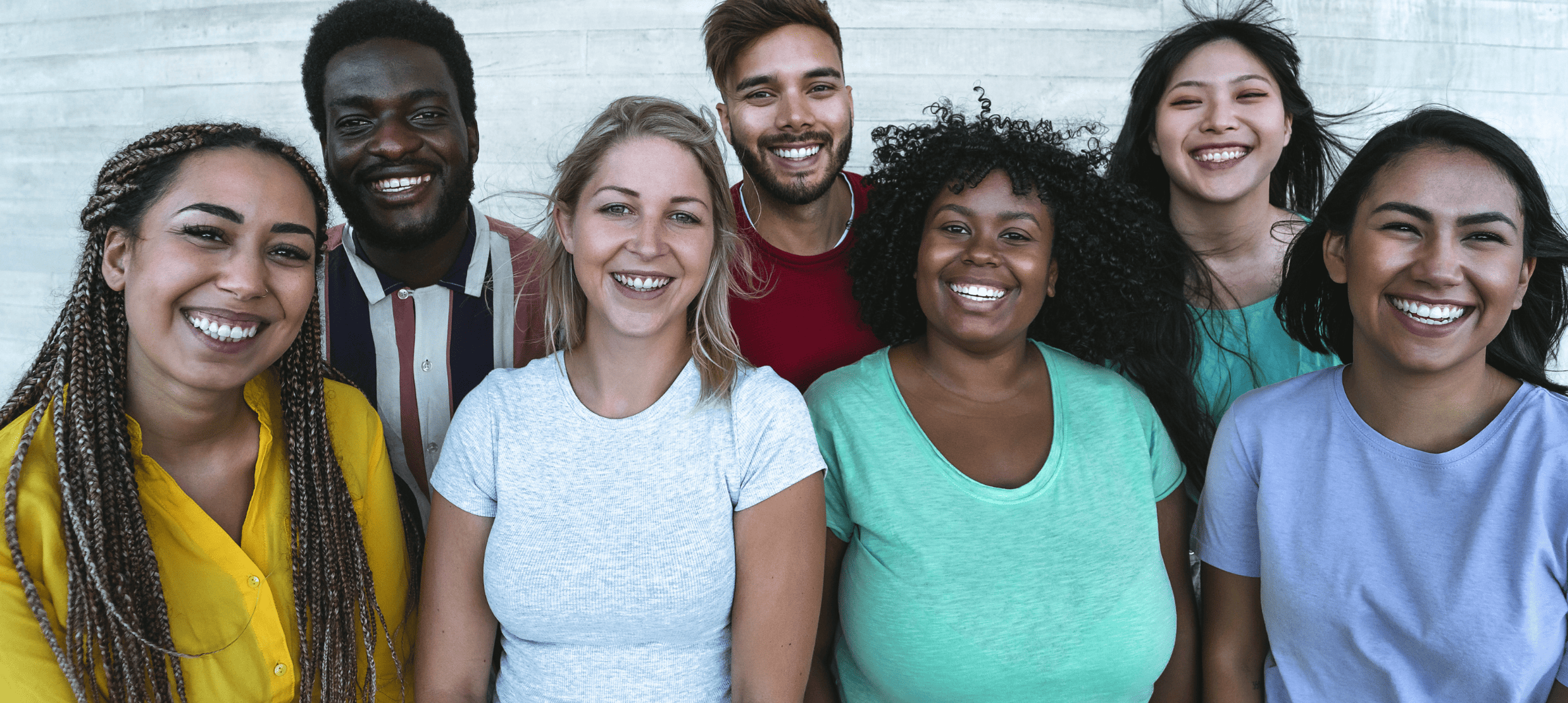Editor’s Note: This blog post is part of a collaborative media series organized and curated by NEDA and the Yoga & Body Image Coalition for Body Acceptance Week.
Bigger is Better, Right?
In the world at large, in the world of straight cis-gendered men, in the world of gay males—we all know that bigger is usually seen as better.
A big muscular body, height and a big penis are ALL seen as better. As an average height and muscle-sized human with an average sized ‘Johnson’ (aka penis), the idea of ‘bigger being better’ has always put me at odds with loving my own body.
I’m average in ALL body departments.
However, if I’m lucky enough for someone to humor me, and use adjectives like ‘big, muscular, and swole’ to describe my body, it’s definitely a self-image booster.
On the other hand, when adjectives like ‘little, skinny, cute, and small’ are used to describe my body, I find them to be devastating to my self-image.
Why is this the case?
I’m 46 years old. I should be okay with my size.
But, I’m not. I’m working on it. Body acceptance is something I’m practicing. I’m undoing a lot of programming on a daily basis.
It’s hard for me not to want my body to be ‘big and muscular’ when I’m living in a culture that says my body should be just that.
Body Image: How I was Raised to See my Body
When I was approaching my teen years, in my community, “That boy’s getting big” was often a phrase used as a way to extend praise (and give hope to) the parents of a young man for raising a male child that was hopefully on the track of fitting the image of what a man should become in height and muscle mass.
Much like a potential German Shepherd or a Pit Bull owner examining the paws of a puppy they’re going to buy—estimating how big the dog will get—I was eyed to see if I was going to be a big, muscular, athletic teen. This comparison of dog owners measuring puppies to men eyeing the potential size of their sons is represented culturally in males referring to other males as ‘Big Dawgs’. How many times have you heard a black man say to another, “What’s up, Big Dawg?!!!”
There are equivalents to this in the white community as well.
Men in America generally are supposed to be big like athletes, like gladiators. We’re supposed to be big, beastly, big dawgs.
Being called big, as in muscular, is seen as a compliment. It’s hilarious but it’s also kind of ridiculous and sad.
When it became clear that I wasn’t going to be a big muscle-bound athletic teen, I was told that I was off track from measuring up to boys my age. From a medical standpoint, my size was fine. But, I wasn’t big enough from a cultural standpoint. My eating habits were monitored. I was criticized for not having the appetite a growing boy should have. I was told that I should’ve been stacking my plate with second and third helpings of food to bulk up. But, “I wasn’t even trying,” they said. I wasn’t a big, strapping boy; and that was my fault and therefore my failure.
So, in addition to me being ‘soft’ and ‘gay acting’ in the eyes my community as a closeted teen, the lack of muscularity in my body was yet another way I fell short of being the young man I was supposed to be.
Additional stress around body image came during puberty when penis size became a hot topic in locker rooms. There were boys that had bigger ‘Johnsons’ than me, and there were boys that had smaller ones. But, we ALL knew—from talk amongst the straight cis-gendered females to TV and porn that we’d sneak to watch—that bigger in the Johnson department was better.
Again, I fell short.
Body Size in the Gay Community
In much of the gay community, a muscular body and a big sex organ is idolized.
It makes sense, right? Amongst a population where acceptance is hardly won, being able to have attributes that meet the standards of dominant culture, such as a big-fit-body and a big penis, are celebrated because it’s a way of getting respect. It says, “Look, I have a big masculine-presenting muscular body and I’m hung. I fit your cis-gendered ideal. I am of value.”
Coming to Accept my Own Unique Body
When boys, teenagers, and men of all sizes aren’t reflected in positive ways in dominant culture, it can make it hard to accept our bodies for straight and gay men alike.
Even though I’ve felt shame on numerous days for not ‘measuring up,’ I didn’t know that what I‘ve gone through all of my life has been a type of body shaming.
Body shaming and, conversely, body acceptance, body positivity, and body love are all catch-phrases that have come into my vocabulary only recently.
The body awareness movement that these phrases have come out of is helping me to understand how my body image has been shaped by culture.
I still idolize the bodies of athletes and compare my body to those of bigger musclebound men.
If my body looks small in a picture, I feel shame. If the bulge in my shorts isn’t big or looks small in a photo, I feel shame.
Pressures to make my body bigger have led to gym injuries and over-eating. Pressures to make my body bigger have led me to consider taking supplements and doing harm to my perfectly, healthy average-sized penis in order to increase its size.
I’m not trying to end the celebration of big, muscular well-endowed men. I’m saying other body types are just as valid. Let’s celebrate and value ALL bodies.
I’m working to celebrate and value mine.
Bigger isn’t better. Body positivity is better. Body acceptance is better. Body liberation is better.
Dorian Christian Baucum (he/him/they) is an openly gay singer/ songwriter, Pharmacist, actor (known for CSI: Las Vegas and ER) and creator of Dorian’s Live Neosoul & Yoga – a concert-style yoga class featuring live music. He’s a contributor to the Yoga & Body Image Coalition book, EMBODIED RESILIENCE THROUGH YOGA: 30 Mindful Essays About Finding Empowerment After Addiction, Trauma, Grief & Loss.






